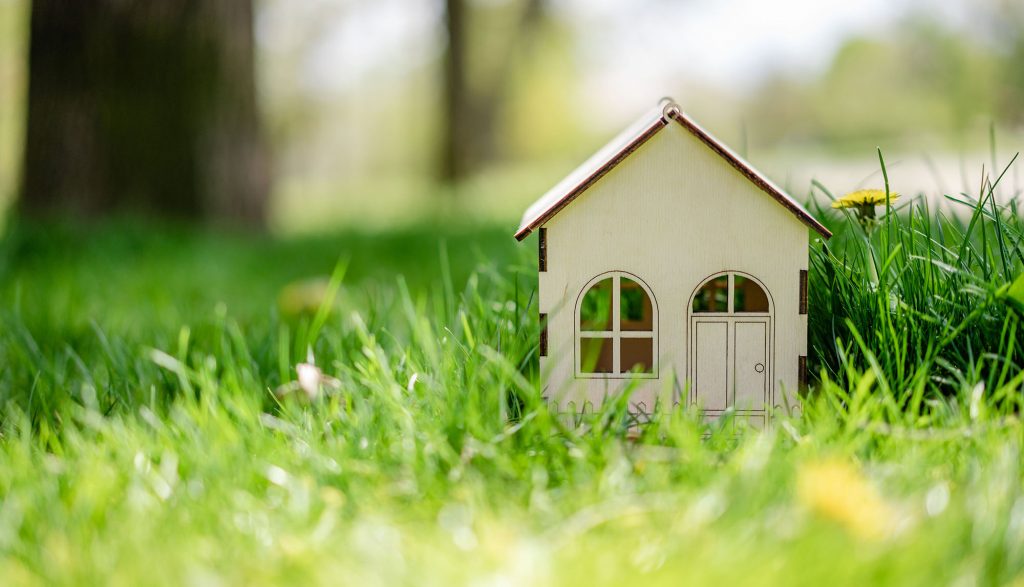Have you been dreaming of building your own home? You can make it a reality by using a self-build mortgage to finance your project. One of the requirements for this is having a deposit but how much do you need to qualify for a self-build mortgage? Different factors can affect the deposit required and we’ll explain those in more detail here.
What is a self-build mortgage?
A self-build mortgage differs from a standard residential mortgage in that, instead of the funds being released in one go when you buy a property, they’re released in stages as your self-build project progresses. These funds can either be released in arrears or in advance.
Advance self-build mortgage
With advance funding, the funds are released by the lender at the start of each construction phase. This is a good option if you only have enough funds to cover your deposit and don’t have access to any other funds, such as savings or another property to release equity from, to get your project underway. Advance funding isn’t as commonly offered by lenders as arrears funding. Lenders who do offer it may retain a percentage of the loan amount, such as 10%. This will be released once the completion certificate has been received for your property.
Arrears self-build mortgage
With arrears funding, the funds are released to you at the end of each construction phase. This means that you have to finance all of the building costs for each stage until the next payment is released. Your site will usually be checked by a property valuer at the end of each stage to ensure that it meets the lender’s approval. At that point, the funds will be released to you. As there is less risk for a lender with arrears funding, it’s more commonly available. You can usually benefit from more competitive rates too.
How much deposit do you need for a self-build mortgage?
The deposit requirement for a self-build home is usually higher than for buying an existing property. Lenders generally offer a loan-to-value (LTV) ratio of 75% for self-build mortgages when you already own the land. This means that you need a deposit of 25% of your building project’s value. You may be offered a lower LTV if you don’t already own the land to build your home on, such as 60%. As such, you’d need to pay a higher deposit of 40%.
Each lender’s criteria differ and the amount that they are prepared to offer depends on various factors. These include your affordability for the self-build project, taking your income, expenditure and outstanding debts into account. If you have existing debts, a good way to try to lower the deposit requirement is to reduce them or, even better, clear them. A good credit rating and experience in this type of project are also preferred by lenders, although not essential. The less risk you pose as a borrower, the more willing the lender will be to offer you a higher LTV. This will reduce the amount of deposit you need to pay.
Specialist self-build mortgage lenders
Private banks and specialist lenders offer more flexibility than mainstream lenders for self-build mortgages. For example, they may base the affordability calculations on your overall wealth, including commissions, bonuses and assets. This allows for a higher LTV to be offered, reducing the amount of deposit you need to pay. For example, depending on your circumstances, they may offer a higher LTV of 85%, with a lower deposit requirement of 15%. Some lenders even offer 100% self-build mortgages if you have another asset to offer as security. An example of this is to already own the plot of land that you’re going to build your home on as you can use this as security.
Help to Build: Equity Loan scheme
Another way to benefit from being able to pay a lower deposit is to use the government’s Help to Build scheme. Available in England, this low-deposit mortgage scheme provides equity loans ranging between 5% and 20% of the total estimated costs. If you’re planning a self-build project in London, an equity loan of up to 40% is provided. You only need a 5% deposit – based on the estimated land and build costs – to take advantage of this scheme. You also need to arrange a self-build mortgage with a lender that’s registered with the scheme.
Can you use land as a deposit for your self-build mortgage?
Most lenders expect you to have savings to cover your deposit for a self-build mortgage. However, if you already own the land to build your home on, some lenders will allow this to be used as collateral for your deposit. If you already have planning permission in place, this will increase the land’s value. As such, the lender may offer you a higher amount for your self-build mortgage.
Discuss your self-build mortgage deposit with an expert
Our mortgage brokers are here to help you understand the deposit requirements when applying for a self-build mortgage. They can discuss your project plans and financial circumstances to get a clearer idea of how much you need to borrow. They can guide you on how to maximise your deposit and advise you on the financial help available if needed. With access to an unrestricted range of lenders, they can then search for the best self-build mortgage deals available. To get started on your self-build journey, just give us a call on 01322 907 000.

